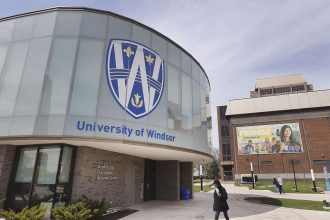The education secretary disclosed a crisis in the sector, with many schools experiencing severe financial challenges.
According to the education secretary, universities in England facing serious financial challenges should not receive a government bailout despite the sector’s warnings about thousands of job losses, course closures, and even bankruptcy.
With 40% of the institution expected to incur budget deficits this year, Bridget Philipson acknowledged the crisis. She stated she was “determined to develop a brighter future for universities” and put them on a “sustainable footing in the long term.”
When asked if the government would intervene as a lender of last resort, she replied that institutions were responsible for managing their own finances. She stated, “Universities are autonomous and there are expectations around how they manage their budgets and I would expect them to do that without seeking any calls on the taxpayer.”
According to Universities UK, which represents 142 institutions, approximately 70 universities are actively engaged in cost-saving programs, including cuts to jobs and courses.
Goldsmiths, University of London, with 97 redundancies, and Huddersfield, Lincoln, and Central Lancashire are affected. However, UUK expects “nearly all” universities to be compelled to make savings by the end of the year.
In an interview with BBC Radio’s Today Program, Philipson refused to comment on any potential increase in domestic tuition fees, which have remained almost unchanged since being increased to £9,000 in 2012 and rising to £9,250 in 2017, saying there were “no plans” on finances at this stage.
She did provide some comfort to the sector, strongly defending international students. After years of uncertainty under the previous government, the education secretary stated that she would ensure the graduate visa route was maintained “so that students can come here and study with certainty and with confidence.”
The much higher fees that international students pay have helped to boost university finances and supplement domestic fees, which are capped and have lost value in the face of rising inflation. However, the Conservatives‘ recent initiatives to curb immigration have dramatically reduced international student enrollment in recent months.
This week, parliament is also expected to announce the reforms to regulations conducted by the OfS, which the government believes will strengthen the sector. Philipson will announce a new Office of Students chair to succeed James Wharton, who left this month.
“We recognise that universities are a public good,” Phillipson said. “The initial steps that we will be setting out later this week are around regulation. We need to see a sharper focus on the regulation of our sector to make sure that universities are on a firm footing.”
UUK would like the government to reduce the regulatory burden on universities, freeing up funds for vice-chancellors to spend on students’ education.
UUK’s chief executive appreciated Philipson’s promises on international students but expressed concerns that the government was closing down options at this stage. She stated, “I think we need to find a solution to this problem; otherwise, things will just get worse.”














